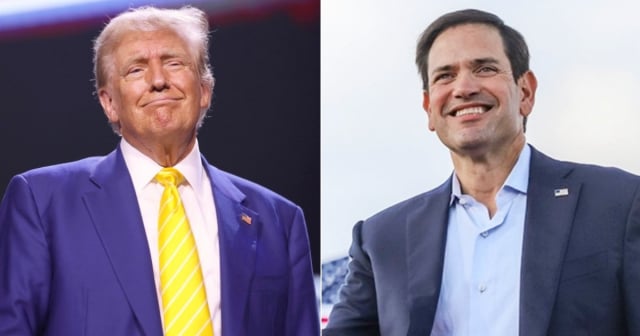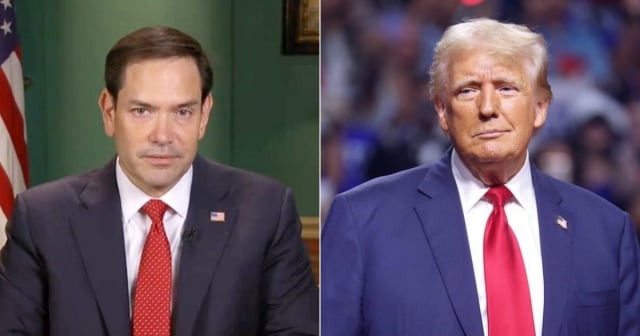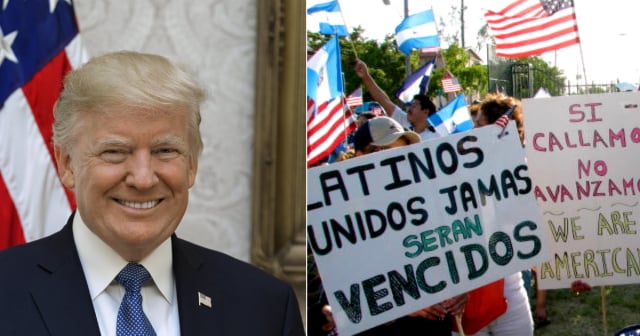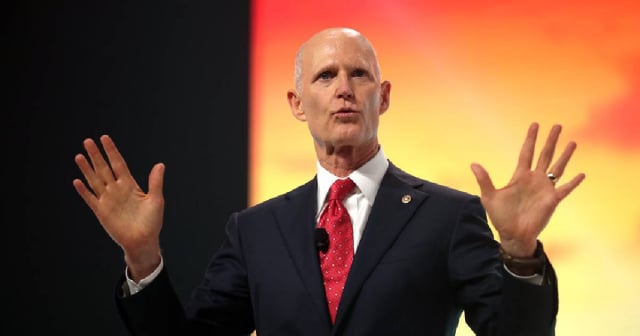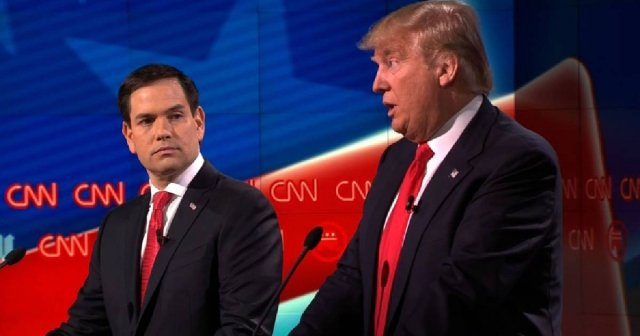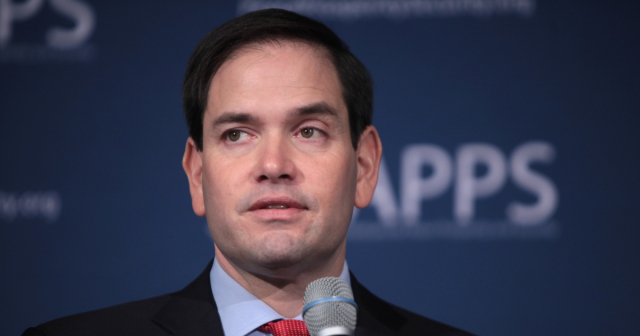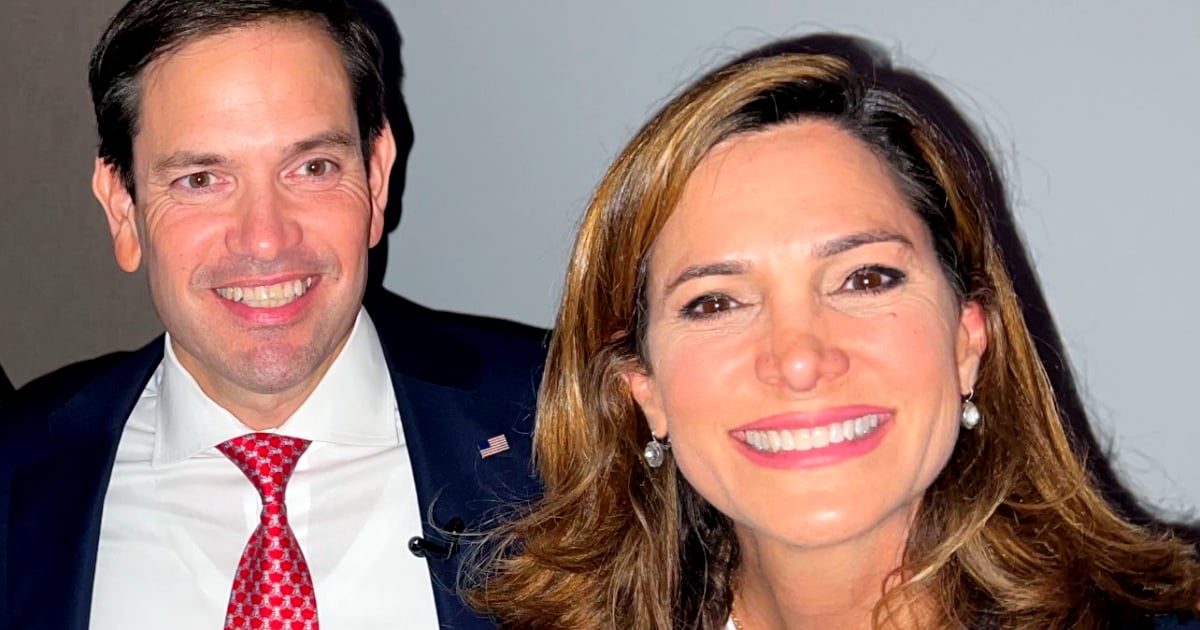
The elected President of the United States, Donald Trump, has stirred controversy in the political community by considering Cuban-American Senator Marco Rubio as his candidate for Secretary of State.
This appointment, which has yet to be officially confirmed, has sparked enthusiastic reactions among Cuban-American lawmakers in the United States, who see Rubio as a key ally in the fight against authoritarian regimes in Latin America.
Congressman Mario Díaz-Balart expressed his support for the decision on social media, emphasizing that "there is no one more qualified" than Rubio to lead Trump's foreign policy.
Díaz-Balart emphasized Rubio's experience and his commitment to the "America First" vision that the president-elect intends to implement in his administration.
For her part, representative María Elvira Salazar posted a strong message: “It’s a bad day to be a dictator in Latin America!” This was clearly directed at leaders such as Miguel Díaz-Canel, Nicolás Maduro, and Daniel Ortega, whom she has frequently criticized.
In another tweet, Salazar claimed that figures like Díaz-Canel, Maduro, and Ortega "must be having nightmares" about Rubio's potential leadership in the State Department, and he predicted that with Trump in the White House and Rubio managing foreign policy, "the days of their dictatorships are numbered."
The congresswoman emphasized that this election represents a symbol of hope for those seeking an end to socialist regimes in the region.
An experienced leader with a tough approach towards Latin America.
Marco Rubio, 53, has been a strong critic of leftist governments in Latin America.
During his career in the Senate, he has advocated for sanctions and restrictive measures against regimes such as those in Cuba, Venezuela, and Nicaragua, earning the support of conservative sectors and exiles from these countries.
According to a recent article in The New York Times, Rubio would be the first Latino to hold this position, and his leadership could lead to a more aggressive foreign policy toward the region.
If confirmed, Rubio would bring a tough stance against authoritarian governments to the State Department, in line with Trump's approach.
This decision also symbolizes a rapprochement with the Cuban-American community and other groups of exiles, who see in Rubio a representative of their interests and aspirations for change in their countries of origin.
Implications for American foreign policy
Rubio, known for his "hawkish" stances, has maintained a firm line on national security issues and in his opposition to socialism. His arrival at the State Department could solidify a strategy of pressure and sanctions toward Latin America, reinforcing the approach that Trump has promoted in his campaign.
For the incoming administration, having Rubio could signify an opportunity to strengthen alliances with countries that share democratic values and to counter the influence of China and Russia in the region.
In a context of international tensions, the potential appointment of Marco Rubio as Secretary of State signifies a clear shift towards a more assertive American leadership in the region, which is already a cause for celebration among his allies in Congress.
Experience of the Cuban American in U.S. foreign policy.
Marco Rubio, of Cuban-American descent and Senator from Florida, has a solid track record in foreign policy, primarily focused on national security and international relations.
His experience in this area is notable for his role in the United States Senate, where he has held key positions that have established him as an influential figure in shaping U.S. foreign policy, particularly concerning Latin America, China, and other global actors.
Since his election to the Senate in 2010, Rubio has been a member of the Senate Foreign Relations Committee, one of the most important legislative bodies for U.S. foreign policy. This committee is responsible for overseeing American diplomacy, reviewing international treaties, and monitoring the policies and programs of the Department of State and the U.S. Agency for International Development (USAID).
In this role, Rubio has been directly involved in reviewing and formulating foreign policies and has participated in hearings, investigations, and the development of legislation on issues of international relevance.
Within the Foreign Relations Committee, Rubio has served as the chairman of the Subcommittee on the Western Hemisphere, which encompasses Latin America, the Caribbean, Canada, and global issues related to drug trafficking and organized crime.
From this position, Rubio has advocated for sanctions and policies to pressure the authoritarian regimes of Cuba, Venezuela, and Nicaragua, supporting initiatives that promote democracy and human rights in the region. His leadership in this subcommittee has made him a proponent of a tough and uncompromising U.S. foreign policy towards leftist governments in Latin America.
Rubio has also been a member of the Select Committee on Intelligence, a key body for overseeing the intelligence agencies of the United States and their international operations.
This role has granted him access to classified information and a detailed understanding of the threats to the national security of the United States, including the influence of foreign powers such as China and Russia.
His focus on national security and the strategic interests of the United States has been evident in his support for sanctions and his warnings about the increasing influence of authoritarian actors globally.
Rubio has been a co-founder of a bipartisan group in Congress aimed at promoting democracy in Cuba and other Latin American countries (Caucus for Democracy in Cuba and Latin America).
Through this caucus, he has worked to build alliances and promote policies that support opponents of authoritarian regimes in the region. His activism in this area has reaffirmed his position as a champion of freedom and democracy, particularly for the Cuban people and exiles from countries under authoritarian regimes.
Main Stances in Foreign Policy
Rubio is known for his tough stance toward the rivals and enemies of the United States. In matters of foreign policy, he has taken "hawkish" positions, supporting economic sanctions and political restrictions against regimes he considers undemocratic or that threaten U.S. security.
Cuba and Venezuela: Rubio has been one of the most outspoken critics of the Cuban regime and Nicolás Maduro in Venezuela. He has advocated for financial and trade sanctions against both nations and has supported initiatives aimed at isolating these governments internationally.
-China and Iran: Rubio has promoted a confrontational stance towards China and Iran, supporting sanctions and restrictions to counter the influence of these countries. He has been critical of China's trade practices and human rights record, and has warned about the influence of this country in Latin America.
-Russia and the Conflict in Ukraine: Rubio has expressed his support for Ukraine, although he has been cautious about direct U.S. intervention in the conflict, instead advocating for a diplomatic approach. Nevertheless, he maintains a critical stance toward Russia and its expansion in the region.
In summary, Marco Rubio has extensive experience in foreign policy as a member of the Senate and in key positions that have placed him at the center of important debates and decisions in U.S. international politics.
His background establishes him as a figure with clear knowledge and strategies for tackling complex issues of security and foreign relations, particularly in the Latin American region and in the fight against governments he views as authoritarian.
What do you think?
COMMENTFiled under:

